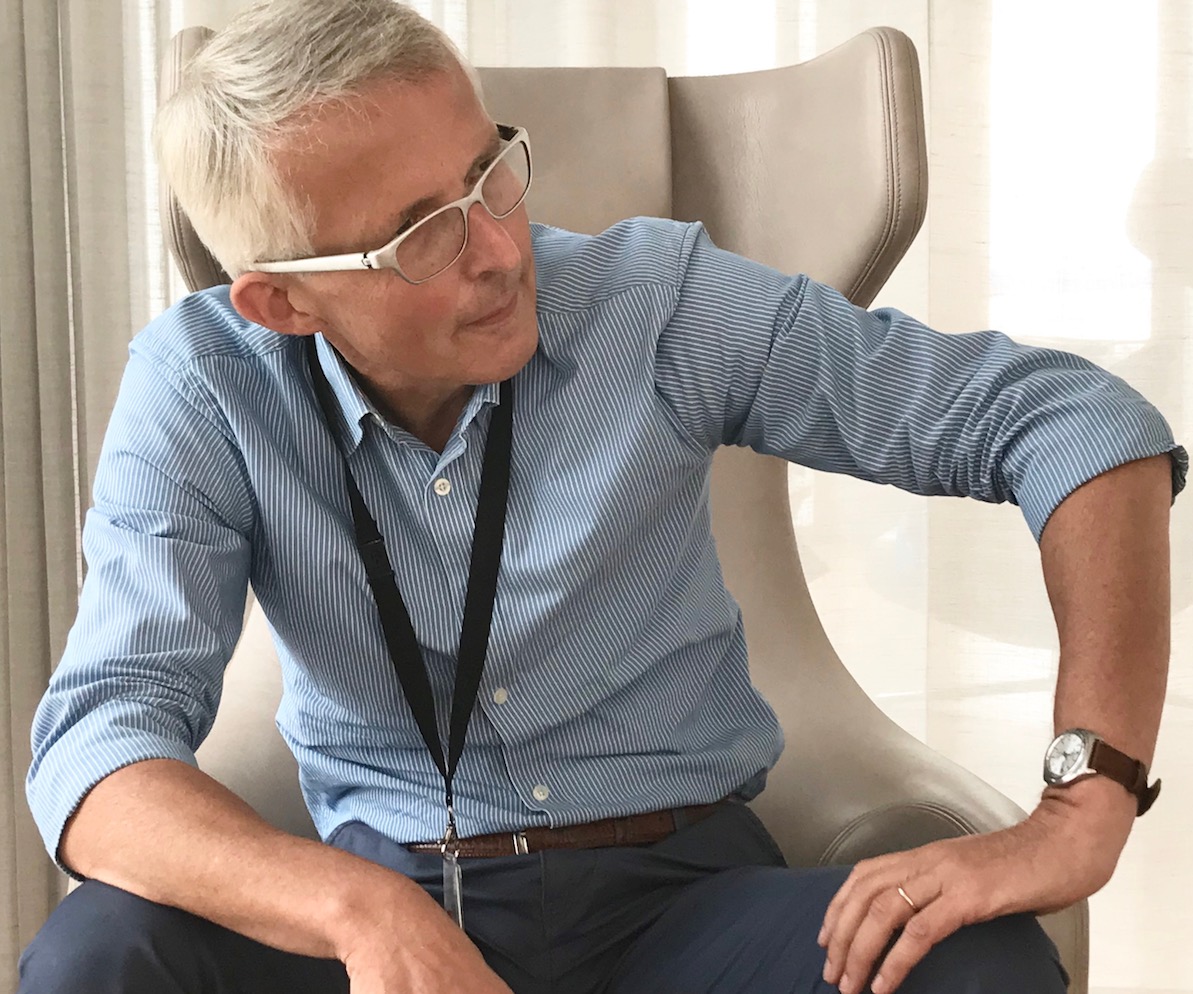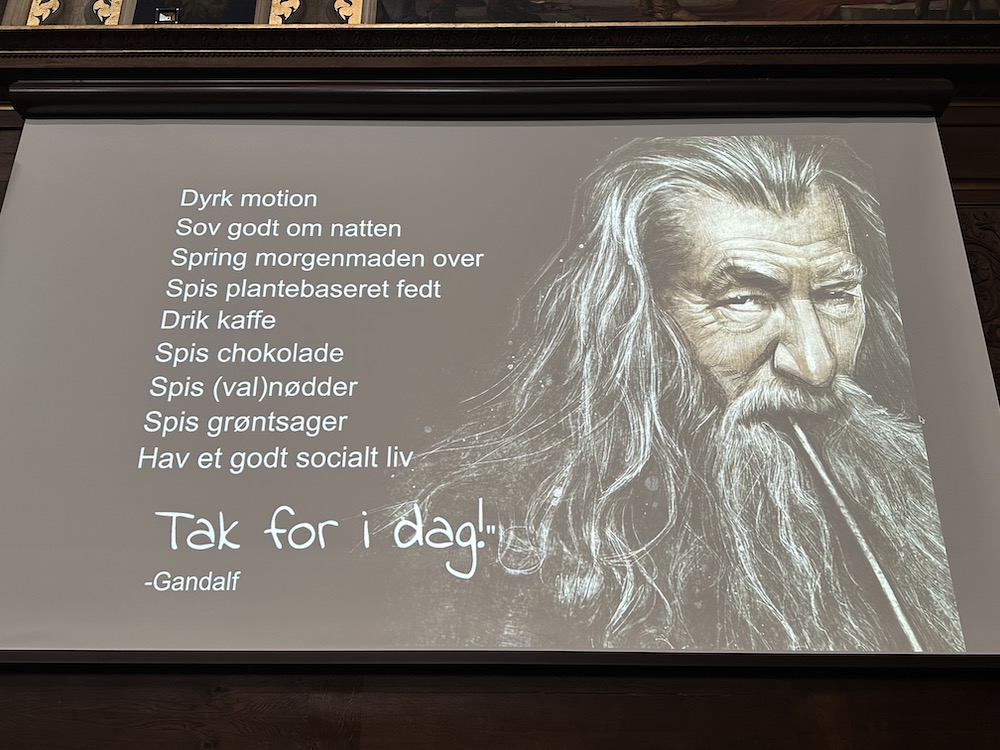
Dutch Professor Will Turn Danish Data into Dynamite
In the 1990s Danish Dynamite had to do with football. In the 2020s it has to do with personal data. At least according to professor Rudi Westendorp, who has received a grant from the Novo Nordisk Fund to make us all age better. His project wil produce a mechanism based on the anonymised data, and Danish individuals can chose to opt in with their personal data in order to get personalised recommendations.
As an outsider Rudi Westendorp sees things and possibilities in Denmark that most Danes from the inside don’t see. The fit, fast-speaking 59-year old Dutch professor, who bikes 35 minutets back and forth to his office at Copenhagen University, KU, is sure that the science project, he is leading, will be a game changer.
“You Danes are proud of your registers, and you should be. But the data is siloed. With our project we will mix the rich data from Statistics Denmark with the rich biological materials from Department of Pathology, Rigshospitalet. All the necessary samples and data are there, so we are just making the connections. It will be dynamite,” says Rudi Westendorp.
“With this project we will try to really understand aging. It is not about preventing death. It is about preventing the nuisance of aging and being able to walk and see and hear and have a good life when aging.”
On behalf of the Center for Healty Aging under the Department of Public Health at KU, he leads an ambitious six-year project, the CHALLENGE platform, financed by Novo Nordisk Fonden. It will shed new light on the relationship between ageing and disease.
Clues about Aging
We do know that we have to eat healthy food in modest portions. We know that we have to exercise. But, says Rudi Westendorp;
“Why do we become grey, wrinkled, grumbling, why do some live longer and healthier than others? We dont have a clue about this today.”
He himself hates sports and keeps fit by walking and biking as much as possible in stead of sitting and driving. It is about doing stuff you like. If you like gardening, keep on gardening. If you like running, keep on running. But if you don’t train, it will fade out, he says. You also need to ‘disrupt’ your convenient life. When he was 55, he and his wife left Netherlands to move to Denmark and start all over.
“Almost everything fades away with time. Thoughts, beauty, vanity, muscles. That is aging. So, you must move you brain. Start all over. Change and challenge yourself. Get out of your comfort zone. Keep training. You have to become sweaty and tired. Train sociallly, emotionally and physically, if you want to prevent the nuisances of aging hitting you in your face.”
The Unique Danish Culture
He moved to Denmark of other reasons, too. Because of the many historic data we collected and structured about our lives. And because of our mentality.
“Here in Denmark you work in groups, but it is not at the cost of the individual. In the UK and US they focus at the individual at the cost of the group. In the rest of the North they go for the group at the cost of the individual. But not in Denmark. That is the beautiful part of Denmark. You have a We and a Me culture,” says Rudi Westendorp and he sees that WeMe culture manifested all around our society.
“At many organsations including Novo Nordisk this culture is part of the company culture. Some of the revenue simply goes to better the society.”
Hardcore on Privacy
Breaking up the data silos and researching on more than health data but all data enshrined in Statistics Denmark (SD) – such as labor market data – is not the only remarkable thing about the CHALLENGE project. It is also the fact that Statistics Denmark is part of the consortium of the project and thereby the data controller of the project. In most science projects, researchers get restricted access to data at SD, they can take out limited anonymized data, and they are then the data controllers themselves. That means SD itself is the gatekeeper on data protection in the CHALLENGE project, and that is stricter than normal, as SD takes it responsibilities and rules on data privacy very seriously.
Why is it then a good idea to work that closely with SD?
“Some of my collegues have been envious about all these data, we will have access to via Statistics Denmark. But only until they understood that the conditions are stricter, and that we, the researchers, don’t own the data. I am happy I am not fully in control.” says Rudi Westendorp.
“Our research on non-anonymised data will be within the firewall of Statistics Denmark, and we won’t get access to identities. We will generate general knowledge on the private data and produce an instrument, a mechanism, to try and understand why we get wrinkles, become grey and diseased. This will lead to better prognosis, treatment and prevention of age related diseases.”
“An individual can opt in with his or her personal data to get individual diagnosis and recommendation. Say you worry about having high cholesterol, you can buy into a prevention program and thus be diagnosed on a threat basis.”
The fact that Rudi Westendorp’s researcher will not get access to identities is just how it is, as it is all about trust.
“People in general tend to allow making use of their private data, as long as you do it in a way that is not at the cost of them. So we have organised our research in a way that come closest to their wishes, and that is keeping their identities behind the firewall of DST,” says Westendorp.
Donating Data Is a Duty
The biggest risk of the project is a set back, when it comes to the willingness of the Danes to donate data for research. But Westendorp does not believe that will happen.
“As long as you explain your research and your are in sync with peoples’ wishes,” he says.
He does believe it is a citizens’ duty to donate data for science:
“I think it is at the brink of being unethical, if you don’t donate your data to science, and especially if you at the same time expect to get help from society, eg a hospital. It is a citizens duty to donate data for science, it is your contribution to society. But fortunately these values are a part of the Scandinavian social democracy.”
Read more on DataForGood.Science

